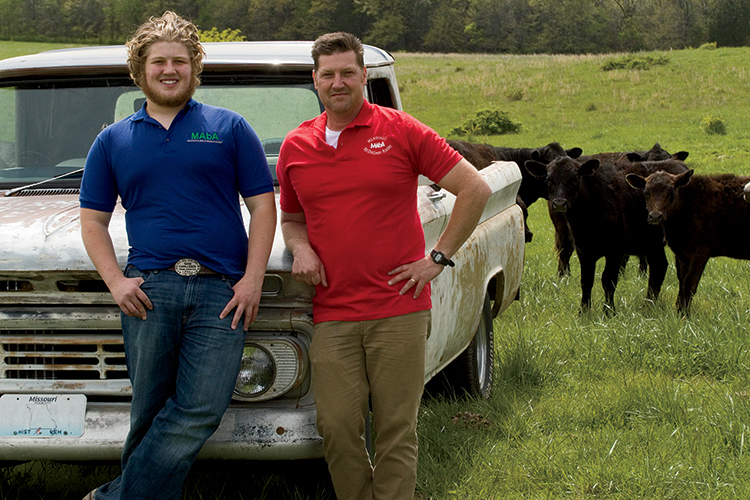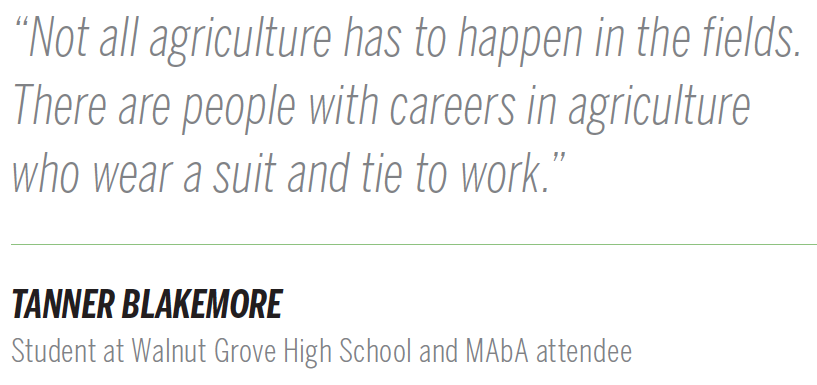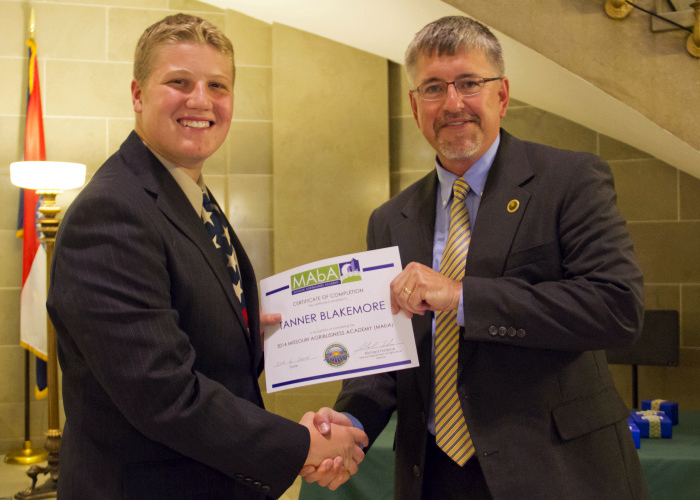Home > Missouri > Missouri Ag Education > Missouri Agribusiness Academy Prepares Students for Careers
Missouri Agribusiness Academy Prepares Students for Careers

The average age of a U.S. farmer is 58 years old, with only 5 percent of farm operators falling under the age of 35. To increase this percentage, Missouri has implemented strong efforts to get more youth involved in agriculture. One way is through the Missouri Agribusiness Academy (MAbA), an annual program of the Missouri Department of Agriculture.
Since 1988, MAbA has offered 30 high school sophomores the opportunity to explore career options in agriculture and learn more about the industry.
“Hundreds of MAbA students have had the distinct honor to learn about the many unique opportunities for careers in agriculture from many farmers, ranchers and agribusiness leaders,” says Richard Fordyce, director of the Missouri Department of Agriculture. “They are exposed to many great things in Missouri and are introduced to new ways to be successful in agriculture. The week they spend amongst other elite youth presents something new and something that may be a future career option for them.”
MAbA graduates have raised the bar each year, becoming successful agriculture teachers and FFA advisors, financial consultants, agricultural communicators, extension agents, and, most importantly, leaders in their fields.
This year, the MAbA Class of 2015 spent a week in the St. Louis area touring agribusinesses including Monsanto, Brighton Ad Agency, Whole Foods, KWS Gateway Research Center, Melvin Price Locks and Dam, and Thies Farm/Greenhouse.

A Look Back
“As a sophomore in 1990, I got to be involved with MAbA, and it was probably the best leadership experience I had in high school,” says Bruce Blakemore, agriculture teacher at Walnut Grove R-V School.
“I was exposed to people across the state of Missouri like myself, and it was a very good experience.”
Since then, Blakemore has earned a degree in agriculture education, married, had children and excelled as an agriculture teacher. Even with these accomplishments, he counts his summer in MAbA as one of his career’s defining moments. “We went to a lot of places that were globally centered,” Blakemore recalls. “We went to the [Kansas City] Board of Trade to watch a trading session. We got to see manufacturing of Butler buildings. We toured the old Kansas City Stockyards before it was torn down. You don’t realize how broad agriculture is as an industry until you have a chance to tour [the various businesses]. After MAbA, I knew without a doubt that I wanted a career in agriculture.”

Academy Aftermath
Today, Blakemore helps mentor and prepare students for their future endeavors and actively encourages them to apply to MAbA. In 2014, two of his high school students were accepted into the program, including his son, Tanner.
“It helps fuel the drive and the passion for agriculture,” Tanner Blakemore says of MAbA. “It’s just a great experience all the way around. You gain so much realworld knowledge – those things that can’t be taught in a classroom. Plus, I made friends that I hope will last a lifetime.”
A Student Looks Ahead
Relationships formed during leadership opportunities like MAbA are incredibly important; however, the focus on career opportunities is key for young people who may not otherwise be exposed to industries outside their family farms.
MAbA also provides a look at what’s to come.
“We’re the future of agriculture,” Tanner Blakemore says. “The average age of the farmer keeps increasing, and eventually, they’re not going to be able to work the farm anymore. Who is it going to fall on to do it? If you don’t have the labor force, who’s going to harvest the crops? Not all agriculture has to happen in the fields. There are people with careers in agriculture who wear a suit and tie to work.”



